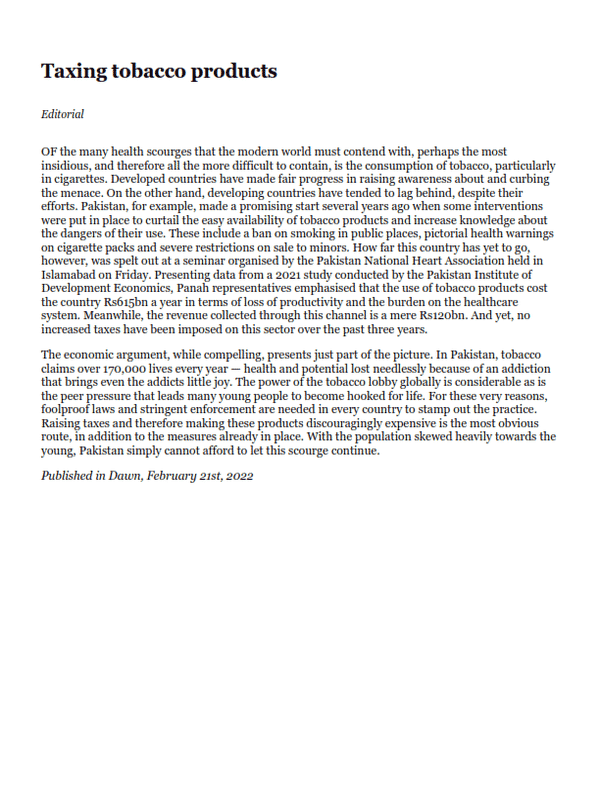Taxing tobacco products
Taxing tobacco products
Published February 21, 2022
OF the many health scourges that the modern world must contend with, perhaps the most insidious, and therefore all the more difficult to contain, is the consumption of tobacco, particularly in cigarettes. Developed countries have made fair progress in raising awareness about and curbing the menace. On the other hand, developing countries have tended to lag behind, despite their efforts. Pakistan, for example, made a promising start several years ago when some interventions were put in place to curtail the easy availability of tobacco products and increase knowledge about the dangers of their use. These include a ban on smoking in public places, pictorial health warnings on cigarette packs and severe restrictions on sale to minors. How far this country has yet to go, however, was spelt out at a seminar organised by the Pakistan National Heart Association held in Islamabad on Friday. Presenting data from a 2021 study conducted by the Pakistan Institute of Development Economics, Panah representatives emphasised that the use of tobacco products cost the country Rs615bn a year in terms of loss of productivity and the burden on the healthcare system. Meanwhile, the revenue collected through this channel is a mere Rs120bn. And yet, no increased taxes have been imposed on this sector over the past three years.
The economic argument, while compelling, presents just part of the picture. In Pakistan, tobacco claims over 170,000 lives every year — health and potential lost needlessly because of an addiction that brings even the addicts little joy. The power of the tobacco lobby globally is considerable as is the peer pressure that leads many young people to become hooked for life. For these very reasons, foolproof laws and stringent enforcement are needed in every country to stamp out the practice. Raising taxes and therefore making these products discouragingly expensive is the most obvious route, in addition to the measures already in place. With the population skewed heavily towards the young, Pakistan simply cannot afford to let this scourge continue.
Published in Dawn, February 21st, 2022




